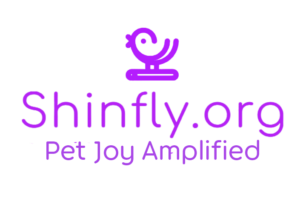
Balanced Nutrition for Small Pet Birds in India
Abstract
Proper nutrition is the most cost-effective and preventive measure for ensuring the long-term health of small pet birds. This article synthesizes research and reputable avian care guidance to provide species-specific diet recommendations for budgerigars, lovebirds, cockatiels, finches, and parrotlets, with an emphasis on Indian household availability. Common diet errors, safe food lists, and evidence-backed transition methods to pellets are discussed.
Introduction
Aviculture in India has grown rapidly, making questions like “What to feed budgies?” and “Budgie fruits and vegetables list” increasingly common among pet owners. Nutritional deficiencies, especially related to a seed-exclusive diet, are linked to preventable disease and compromised welfare in small parrots and songbirds (Petmate, 2024; Kaytee, 2025). The present review serves as a practical resource, organizing recommendations by bird species with regionally appropriate food examples.
General Principles of Avian Nutrition
A balanced pet bird diet provides a species-appropriate foundation of formulated pellets, a substantial mix of vegetables, limited fruit, and minimal seeds or treats (Petmate, 2024; Kaytee, 2025). Clean water and enriched, varied presentation are essential adjuncts.
Seed vs. Pellet Diets
Exclusive seed diets are high in fat and deficient in essential nutrients, leading to obesity, metabolic disorders, and vitamin-A deficiency, whereas quality pellets deliver balanced vitamins, minerals, amino acids, and fiber (Petmate, 2024). Pellets should constitute the bulk of the diet, with gradual transition over several weeks to avoid food refusal.
Species-Specific Diet Recommendations
Budgerigars (Melopsittacus undulatus)
- Pellets: 50–60% of diet. Brands such as Harrison’s Super-fine and Roudybush Nibbles have grain-free, nutrient-rich options.
- Vegetables: 25–30%. Indian greens (e.g., palak, methi), carrot, and bell pepper should be finely chopped and offered daily.
- Fruits: ≤10%. Examples include papaya, guava, and apples (seeds removed), with offerings limited to 2–3 times a week due to sugar content.
- Seeds/Treats: ≤5%. Reserved for training; millet sprays are preferred.
- Unsafe foods: Avocado, chocolate, onion, garlic, and apple seeds are toxic and must be strictly avoided (Kaytee, 2025).
Lovebirds (Agapornis spp.)
- Pellets: 50%. ZuPreem FruitBlend Small is recommended.
- Vegetables: 30%. Dice pumpkin, bottle gourd, and capsicum to <1 cm for ease of eating.
- Fruits: 15%. Rotate mango and pomegranate arils.
- Seeds/Nuts: ≤5%. Sunflower kernels should be minimized due to obesity risk after 18 months.
Cockatiels (Nymphicus hollandicus)
- Pellets: 55%.
- Vegetables: 25%. Sweet corn and beet tops are especially favored; corn should be steamed lightly.
- Fruits: 10%. Papaya cubes and orange wedges (remove all seeds/pith).
- Seeds/Nuts: 10%, with sunflower content restricted to less than 5% due to the risk of fatty liver disease (Kaytee, 2025).
Finches & Canaries
- Sprouted seeds: 40%. Include mung, wheat, and canary grass; rinse seeds twice daily to prevent spoilage.
- Dry seed: 30%. Proso and foxtail millet; use only dust-free mixes.
- Greens/vegetables: 20%. Broccoli florets, carrot tops, and methi, minced for accessibility.
- Egg/Insect protein: 10%. Boiled egg or occasional mealworms support breeding health.
Parrotlets (Forpus spp.)
- Pellets: 60%. Harrison’s Super-fine supports small beak sizes.
- Vegetables: 25%. Micro-chopped coriander, bell pepper, and zucchini.
- Fruits: 10%. Blueberries and diced apples supplied in foraging cups.
- Seeds: ≤5%. Provide small-millet mixes in separate portions to avoid aggression.
Food Safety and Toxicity
Common household toxins include avocado, chocolate, caffeine, alcohol, onions, garlic, apple seeds, raw potato, tomato leaves, and xylitol products. Immediate veterinary care is required in suspected cases of ingestion (Petmate, 2024; Kaytee, 2025).
Presentation and Feeding Behavior
Matching chop size to beak size, ensuring a daily spectrum of at least three different vegetables, and prioritized foraging techniques (e.g., hiding vegetables in toys) maximize both acceptance and mental stimulation. Dietary changes—especially the switch from seeds to pellets—should be implemented by replacing 10% of the previous mix per week while observing weight and droppings closely (Petmate, 2024).
Seasonal and Local Foods in India
Indian climate offers seasonal produce rotations:
- Winter: Carrot, beetroot, mustard greens; guava, orange, strawberry.
- Summer: Bottle gourd, cucumber, okra; watermelon, mango.
- Monsoon: Ridge gourd, green beans, pumpkin; papaya, pomegranate, lychee.
All produce should be thoroughly washed, pat-dried in monsoon, and cut to appropriate size.
Discussion
Providing a species-appropriate, diverse diet prevents most common nutritional disorders, extends healthy lifespan, and supports optimum behavior in small pet birds. The economic and nutrient density of Indian greens like palak and methi make them valuable daily staples. Owners are encouraged to monitor health, track weights, and consult avian veterinarians for diet personalization.
Conclusion
Balanced nutrition for pet birds in India is attainable through a foundation of quality pellets, local fresh vegetables, limited fruit, and a cautious approach to treats and seeds. Awareness of toxins and a focus on dietary variety are critical components of responsible avian care.
References
Kaytee. (2025). What is the best diet for pet parrots? Kaytee Avian Nutrition. https://www.kaytee.com/learn-care/pet-birds/what-do-pet-parrots-eat
Petmate. (2024). Pet bird feeding basics: What every bird owner should know. Petmate Academy. https://www.petmate.com/blogs/petmate-academy/how-to-feed-pet-birds
BestFriends. (2004). The best parrot diet (and toxic foods to avoid). https://bestfriends.org/pet-care-resources/best-parrot-diet-and-toxic-foods-avoid
Supertails. (2025). Best bird food for parrots, canaries & finches: Top nutrition guide. https://supertails.com/blogs/posts/best-bird-food-for-parrots-canaries-finches-a-comprehensive-guide
Pashudhan Praharee. (2023). Tips on feeding pet birds. https://www.pashudhanpraharee.com/tips-on-feeding-pet-birds/


